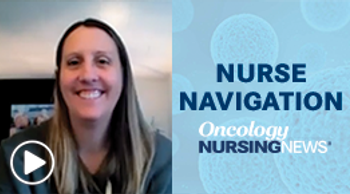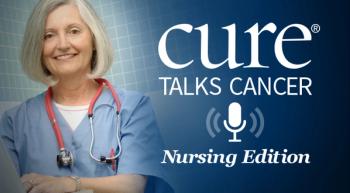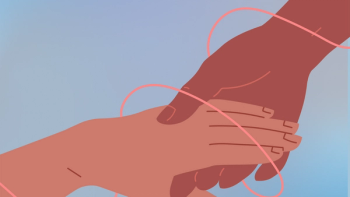
The new model of care will seek to increase value-based care for patients receiving chemotherapy.

The new model of care will seek to increase value-based care for patients receiving chemotherapy.

During the 40th Annual Chemotherapy Foundation Symposium, Sandra Kurtin, PhD, ANP-BC, FAPO, discussed improving health literacy in oncology care.

Buying one for your practice or enhancing the one you have will help you cut costs and boost your financial stability.

Pilot programs based out of Yale Cancer Center and Moffitt Cancer Center seek to improve access for newly diagnosed patients with cancer.

Two oncology nurses with Allegheny Health Network discuss how they guide patients through their diagnosis, treatment, and life after cancer.

Janelle Wagner, RN, OCN, Senior Manager of Patient Navigation Program for Community Sites, highlights some challenges commonly associated with nurse navigation, and how nurses can overcome them.

Janelle Wagner, RN, OCN, Senior Manager of Patient Navigation Program for Community Sites, discusses the challenges and rewards of nurse navigation in oncology.

Patient experience programs can improve quality of care and decrease organization costs, resulting in a more efficient and less expensive cancer care journey for patients.

Stephanie Jackson, DNP, MSN, RN, AOCNS, BMTCN, Oncology Nursing News co-editor in chief, comments on the importance of self-care for oncology nurses.

Deidra Hamilton, MSN, RN, OCN, ONN-CG, recently presented on how cancer institutions can clearly define the role of a nurse navigator to prevent scope creep and use gap analysis and metrics to showcase the value of a navigator in their program.

Chevon Rariy, MD, outlines patient eligibility criteria, and the alterations to the nurse patient relationship, as CTCA launches the novel Oncology Clinic at Home Program.

A poster presented at the 2020 San Antonio Breast Cancer Symposium found a trend towards less frequent care refusal when a safety net hospital introduced nurse breast navigators.

While EMRs have improved clinician workflow in recent years, they are not perfect. Paper charts may still have a place in cancer clinical research.

The COVID-19 Pandemic has increased the use of video conference technology, but this technology has a lasting impact for caregivers in reducing their anxiety when it comes to continuing visits with patients with cancer.

New perspectives, new faces of leadership, new leadership styles, all can create new opportunities with more voices being heard.

Stress management is vital for any profession, but for oncology nurses, stress management is crucial to not only helping themselves but also helping their patients.

The stigma around palliative care is that it is only associated with end of life, and in some minds, giving up. But that isn't the case, as palliative care is a vital part of any critical care.

In this month’s episode of CURE Talks Cancer Podcast: Nursing Edition, we had the chance to speak with Chasity M. Washington, MPH, CHES, on how the diversity in the workplace is important to cancer care.

Among the various specialties of nursing, a sort of hierarchy has formed that may be putting competency with machines over nurse and patient interactions.

The grieving process doesn't stop when you think you're ready to go back to work, and it can be made worse when your coworkers are unsure how to console you. Which is why workplace assistance is essential for grieving employees.

Oncology nurses are a key part of the cancer care team, but they are also a crucial source of information for a patient's family.

Providing compassion to your patients won’t just help their day-to-day care, it can also change their treatment journey for the better.

A recent ranking of "the best" hospitals in the country did not take a key aspect of cancer care into proper consideration, the oncology nurse.

Being an advocate might not only change your patients' lives but your life as well.

Sometimes, there's only so much you can do for patients in a clinical setting. But by sharing their stories and struggles, you can drive change that will affect their clinical treatment.

In this episode of CURE Talks Cancer Podcast: Nursing Edition we speak with an oncology nursing expert on a topic not addressed enough, workplace violence.

To best help your patients, you need to understand what they are going through, and the best way to do that is to have hopeful conversations with them that get them talking.

Patient navigation is set to be a pillar within cancer care, but challenges remain.

Certain populations are less likely to receive treatment for breast cancer. Nurses should lead a multidisciplinary team to improve that.

Standardized and focused education for patients receiving CAR T-cell therapy and their caregivers should be part of discharge procedures.